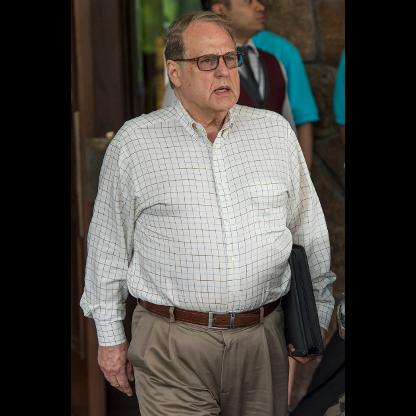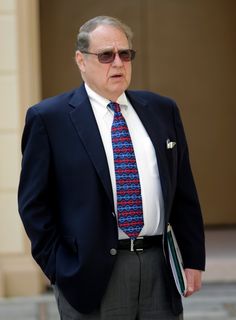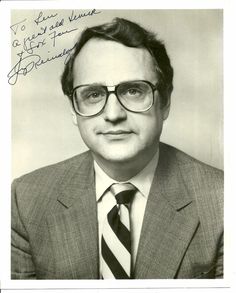
| Birth Day | February 25, 1936 |
| Birth Place | Chicago, Illinois, United States |
| Age | 88 YEARS OLD |
| Birth Sign | Pisces |
| Education | George Washington University Northwestern University School of Law |
| Occupation | Owner of Chicago White Sox and Chicago Bulls |
| Spouse(s) | Martyl F. (Rifkin, December 29, 1956) |
| Children | David Jason (deceased) Susan Janeen Michael Andrew Jonathan Milton |
| Parent(s) | Max and Marion (Smith) Reinsdorf |
Jerry Reinsdorf, a prominent figure in the sports industry in the United States, is estimated to have a net worth of $2.2 billion by 2025. Reinsdorf's success and wealth can be attributed to his involvement in multiple sports franchises. As the owner of the Chicago Bulls basketball team, he witnessed tremendous success in the 1990s, leading the team to six NBA championships. Additionally, Reinsdorf owns the Chicago White Sox baseball team. With his business acumen and passion for sports, Jerry Reinsdorf has solidified his position as a significant player within the American sports landscape.


Reinsdorf earned a bachelor's degree from George Washington University in Washington, D.C. where he became a member of Alpha Epsilon Pi. He subsequently moved to Chicago in 1957. Reinsdorf became a CPA and Lawyer as well as a registered mortgage underwriter and a certified review appraiser. He leveraged a full scholarship offer from the University of Chicago Law School into a scholarship from the Northwestern University School of Law. His first job after graduating from Northwestern in 1960 was a tax delinquency case of bill Veeck who at the time owned the White Sox. In 1964, Reinsdorf went into private practice. He developed a specialty in real estate partnership tax shelters. He sold his Business interests in the real estate partnership in 1973 and formed Balcor, which raised US$650 million to invest in buildings under construction. He sold Balcor in 1982 for $102 million to Shearson Lehman Brothers, the investment banking and brokerage arm of American Express. However, he continued to be President of the company for several years thereafter.
In the 1980s, Reinsdorf, Bud Selig and the American League President colluded to dissuade the Philadelphia Phillies from signing Lance Parrish who was a Detroit Tigers free agent. During the strike, Reinsdorf, who was an anti-union hard-liner, was so pessimistic that he did not expect baseball to resume until the 1996 Major League Baseball season. In the early 1990s he was able to get new stadiums (United Center and U.S. Cellular Field) for his teams.
After Reinsdorf purchased the team in 1981, the team experienced erosion of fan and media support which led to moving the team. He complained about old Comiskey Park with its foible such as numerous obstructed view seats and threatened to move the White Sox. Among his threats was moving the team to Itasca or Addison, Illinois in DuPage County. Reinsdorf, through his real estate Business, purchased 100 acres (400,000 m) in Addison. Chicago Mayor Harold Washington lobbied the Illinois legislature, and subsequently then-Illinois Governor James R. Thompson promoted a package of incentives to retain the team in Chicago. The state floated bonds to build New Comiskey Park and let Reinsdorf keep all parking and concession revenues, as well as the $5 million per year from 89 skyboxes. Reinsdorf and Chicago Blackhawks owner, william Wirtz contributed $175 million to fund the construction of the largest arena in the United States. When the United Center opened in 1994 all of the skyboxes were leased for up to eight years. As per the collective bargaining agreement, Reinsdorf was allowed to exclude 60% of luxury suite revenue from "basketball-related income" and thus it is not part of the revenue sharing income.
The White Sox have won American League regular season Division Championships in 1983, 1993, 2000, 2005 and 2008 under Reinsdorf and they won the 2005 World Series. In addition, they were in first place of the central division at the conclusion of the strike-shortened 1994 Major League Baseball season. The World Series victory made him only the third owner in the history of North American Sports to win a championship in two different Sports. The baseball championship boosted the value of the franchise to over $300 million. When Reinsdorf signed Jordan after Jordan's announcement that he wanted to play baseball, many thought Jordan's drawing power provided an ulterior motive. Reinsdorf, however, had tried to convince Jordan not to give up basketball, but he did not attempt to make Jordan the highest paid player in the game like some feel he should have.
In the months prior to the purchase, Milwaukee businessman Marvin Fishman had been awarded a $16.2 million judgment against the Bulls. Fishman had been illegally blocked from purchasing the team in 1972. Reinsdorf purchased the team from an ownership group that included Lamar Hunt, George Steinbrenner, Walter Shorenstein, Jonathan Kovler, Lester Crown, Philip Klutznick, and the estate of Arthur Wirtz, and he held a $9.2 million controlling interest in the team. Reinsdorf's share of 56.8% of the team was purchased from Klutznick, Steinbrenner, Shorenstein and the estate of Wirtz. His purchase ended an era in which the Bulls were managed by committee with decisions by conference call, verdicts by vote. Reinsdorf acquired his majority interests on March 11, 1985 and Kovler sold his 7% stake in the team on January 29, 1986, bringing Reinsdorf's interest to 63%. The following week Reinsdorf ousted Rod Thorn as general manager and replaced him with Jerry Krause.
In 1985, following in the footsteps of Einhorn who had purchased a United States Football League franchise in 1984, he purchased the Chicago Bulls as part of a syndicate for US$16 million and quickly turned the team from one that averaged 6,365 fans per game at the 17,339-seat Chicago Stadium in 1985 into one with an 8,000-person season ticket waiting list. He did so by drafting Horace Grant and Scottie Pippen, and trading for bill Cartwright to join John Paxson and Michael Jordan under the tutelage of head coach Doug Collins. In 1989, the team signed Phil Jackson as the final piece of the championship puzzle. From November 20, 1987 through Jordan's 1999 retirement, the Bulls sold out every game.
Reinsdorf is a powerful baseball owner who in 1988 stopped the sale of the Texas Rangers and later influenced the sale of the Seattle Mariners. Edward Gaylord and Gaylord Entertainment Company had first attempted to buy the Rangers in 1985. Reinsdorf was also said to be largely responsible for the ousting of Fay Vincent as the Commissioner of Baseball in 1992. He had previously undermined Vincent by employing richard Ravitch as the league's labor negotiator at a salary higher than Vincent's. By the early 1990s, Reinsdorf and acting Baseball commissioner (as well as Milwaukee Brewers owner) Bud Selig had assumed baseball's mantle of power from Atlanta Braves owner, Ted Turner, and New York Yankees owner, George Steinbrenner, who had in turn taken over the sport from Brooklyn/Los Angeles Dodgers owner, Walter O'Malley, St. Louis Cardinals owner, Gussie Busch, and Oakland Athletics owner, Charlie O. Finley.
As a basketball owner, he has been described by Time as a "cheapskate", a reference they also use for his baseball persona. As of 1995, the time when Scottie Pippen was eager to either be traded or be rid of Krause, he had never renegotiated a contract. As a baseball owner, he has had a reputation as one of the most militant, anti-union, hard-line owners. Newsweek described him as "one of the hardest heads in the 1994 baseball strike". In the baseball offseason between the 1992 and 1993 seasons, he completely abstained from the free agent market. Reinsdorf was one of the last holdouts to the 1996 labor agreement that instituted the salary cap while retaining arbitration rights for the players. His 1996 signing of Albert Belle made news because of his widely publicized general opposition to spiraling player salaries. The $55 million signing was a turning point in the decision by the baseball owners to agree to revenue sharing. The signing also made Reinsdorf the employer of the highest paid Major League Baseball player and highest paid professional basketball player (Jordan) at the same time. Reinsdorf had just re-signed Jordan after the 1995–96 NBA season. However, Jordan had been underpaid most of his career, and Reinsdorf, who did not feel he could justify the $30 million salary from a Business standpoint, immediately realized he was going to soon feel buyer's remorse. Even his most successful baseball team was not highly paid: when the White Sox won the 2005 World Series, Reinsdorf had the 13th highest payroll of the 30 Major League Baseball teams.
Some fans and columnists have accused Reinsdorf of breaking up the championship Bulls team after their third straight title and sixth in eight years, claiming the Bulls could have competed for more titles with Michael Jordan, Scottie Pippen and good support from the rest of the team that in the eight-year span included Dennis Rodman, Horace Grant, Toni Kukoč, Ron Harper, BJ Armstrong, and coach Phil Jackson. Some accounts claim that because Jackson feuded with both Reinsdorf and Krause and because both Jordan and Pippen were linked to Jackson, the team was broken up. Forbes describes the scenario as an Example of owner greed. Many note that Phil Jackson's decision not to return as coach and Jordan's retirement during the 1998–99 NBA season lockout impacted the decisions of several players on whether to return to Chicago. Krause and Reinsdorf had held out hope that they could convince Jackson and Jordan to return and thus had introduced Tim Floyd as President of Chicago Bulls Basketball Operations instead of head coach. Reinsdorf had made it clear to Jackson that he was wanted back.
Reinsdorf is largely responsible for the revenue sharing of the internet rights of Major League Baseball in which all teams have shared equally since Major League Baseball Advanced Media (known as BAM) was established in 2000. Reinsdorf also endeavored to sell the naming rights to the New Comiskey Park to U.S. Cellular in a $68 million 20-year deal that funded a 7-year $85 million overhaul of the stadium that ended prior to the 2008 Major League Baseball season. The overhaul included the removal of top rows of the upper deck, replacement of the baby blue seats with traditionally-colored green ones and dozens of other upgrades. Prior to the seven-year overhaul, the 2001 White Sox barely broke even financially with a $700,000 operating profit on revenues of $101.33 million.
Reinsdorf won a major revenue sharing legal battle with other NBA owners over the Chicago Bulls broadcasts on WGN-TV. The 55 game schedule on the superstation for an audience of 35 million competed with the NBA broadcasts, but Reinsdorf was permitted to maintain the contract. As recently as 2004, the Bulls continued to be the NBAs most profitable team, earning $49 million in operating income and having an estimated valuation of $356 million.
Reinsdorf was inducted into the Appleton, Wisconsin Baseball Hall of Fame on August 5, 2006 in a ceremony at Fox Cities Stadium prior to that evening's game between the Midwest League Wisconsin Timber Rattlers and Beloit Snappers. He was so recognized because a former Minor League club, the Appleton Foxes, was a Chicago White Sox affiliate and won three consecutive Midwest League Championships in the early years of Reinsdorf's ownership.
Reinsdorf was one of two bidders for the Phoenix Coyotes that would commit to not relocating the team. On July 29, 2009 Reinsdorf and his group were approved for ownership of the Coyotes for $148 million. In August 2009, it was reported that Jerry Reinsdorf & Ice Edge LLC had dropped its bid for the Coyotes, leaving only Balsillie and the NHL as bidders for the team. The NHL bid ultimately prevailed, however the league stated it wished to re-sell the franchise as soon as possible. On March 24, 2010, it was reported that Reinsdorf was once again a possible buyer for the Phoenix Coyotes. Reinsdorf had been working out an arrangement to make the deal more feasible with the municipality of Glendale, Arizona. As late as August 2011, negotiations between Reinsdorf and the City of Glendale were still in process for the purchase of the Coyotes. However, in 2013, the Coyotes were sold to IceArizona, a group of Investors that did not include Reinsdorf.
In 2013, Reinsdorf partnered with Mark Sullivan, Noah Kroloff, Dennis Burke, David Aguilar, and John Kaites to found Global Security and Innovative Strategies.
On April 4, 2016, Reinsdorf was elected to the Naismith Memorial Basketball Hall of Fame as a contributor.
